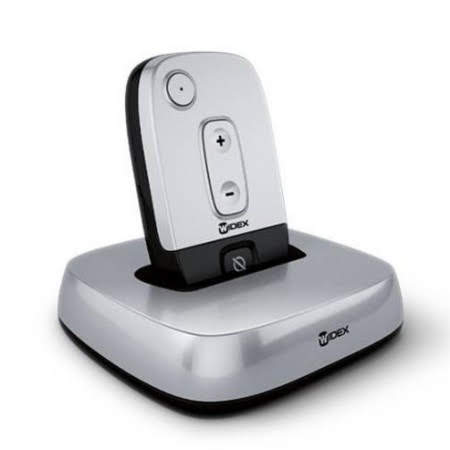A recent article on NYU.EDU on nursing homes saddened me greatly. The article was about a study undertaken which seemed to suggest that nursing homes ignore their resident's hearing loss. In essence, it is believed that many people in nursing homes have a hearing loss that is simply ignored. My own take on this would be that the problem isn't negligence, it is lack of knowledge. While the article was saddening, it didn't, in fact, shock me. I have had a lot of experience with Patients who are residents of nursing homes. Some of it bad and some of it good. In fact, the article reminded me of one such experience recently.
An Old Friend
Recently a new Patient came to see me looking for new hearing aids, I recognised the face, but the name meant nothing to me (typical really of me, faces not names). Anyway, it soon became obvious that the person was an old Patient of mine from before I went to work at a hearing aid manufacturer. The Patient is now living in a nursing home and was looking for an upgraded solution that would help them hear clearly.
The TV Was Important
As I was speaking to the Patient, it became very obvious that the TV was important. The nursing home that they live in offers what are basically one room ensuite. There is a TV in the room but they very rarely enjoyed watching it because they just could not understand it.

Widex Unique 110 and a TV-DEX
Anyway, I recommended Widex Unique 110s and a TV-DEX. The Patient only needed basic hearing aids for their needs, however, the requirement for the TV meant that a wireless device was a requisite. I chose Widex because their audio streaming using the Widex-Link is the best I have ever experienced.
Pure Delight
The result was pure delight, I attended the nursing home, programmed the hearing aids and set up the TV-DEX. I first checked that everything was okay and that the user could hear well at different levels of speech. Then I turned on the TV-Dex and checked that the audio streaming was working and that they could hear clearly.
The look of pure delight was both a confirmation and a reward in itself. I showed the Patient how to control the audio inputs and the volume of the streamed audio. The Patient was truly delighted, such a simple thing that we take for granted, but the loss of it had affected them greatly. The look of unadulterated joy brought a lump to my throat (I think I am hormonal or something, this is happening a lot lately), in fact, it drove a huge sense of joy and wonder in me.
Sometimes It's The Simple Things
It reminded me that sometimes it's the simple things that mean so much. The Patient wasn't very mobile and interaction with others was difficult enough. While they loved reading, their degraded eyesight made that infuriatingly difficult. The TV was difficult because it was hard to understand. For all intent and purpose, the Patient was experiencing no interaction or very little that was not strained. Isolation is maddening, what stimulation can there be with little or no communication?
The TV Isn't The Answer
The TV isn't the answer here, but it's a damn good start, the hearing aids will allow better one to one interaction during the day as well. The next job for me is to help set up some audiobooks on CD for her. So that the Patient can begin to enjoy books as well.
Training The Staff
One of the most important things that I did that day was to train the staff about the hearing aids. The Patient can't manage them, so the staff will have to. I showed them the working parts, explained how to change batteries and wax guards and showed them how to get them in the ear. The next time I go, I will refresh them on the subject and give them some handouts.
The staff involved with nursing home care need to be made aware of the communication difficulties that any Patient is having. Not just that, they also need to be made collaborators in the process of hearing better. Because if they don't understand what is at stake, how can they act?
Our Job
I have begun to think more and more that this will be our job, we in the profession will need to engage with nursing homes and nursing home staff to ensure that they have a rudimentary understanding of hearing aids. That is a matter for another day, but if you have someone in a nursing home with hearing loss there is something that you can do.
The Damned Loneliness of Isolation
If you have a loved one in a nursing home with a hearing loss, make sure the staff understand the vagaries of their hearing aids. Because if they don't, they can't help. The one thing that really struck me from my recent experience is the isolation and loneliness forced upon people by hearing loss. It doesn't need to be that way, especially if they in fact actually have hearing aids. Because life without the simple joy of communication must be intensely hard.
Make sure they are used, make sure they work, make sure the professional is called if they don't.
If you like what you see, share it so others can benefit
Posted by Geoff

Geoffrey Cooling





Geoffrey (Geoff, anything else makes him nervous) Cooling is an Irish hearing aid blogger and has been involved with the hearing aid industry for over ten years. He has worked in private practice dispensing hearing aids and as a manufacturer's rep. He has written two books and they are both available on Amazon. He loves technology, passing on knowledge and is legendary for many other things, primarily the amount he curses, his dry and mischievous sense of humour and his complete intolerance of people who are full of themselves. Please feel free to connect with him
Looking For the Latest Hearing Aids or A Hearing Test?
Arrange a consultation with a trusted Independent hearing healthcare professional in your area



